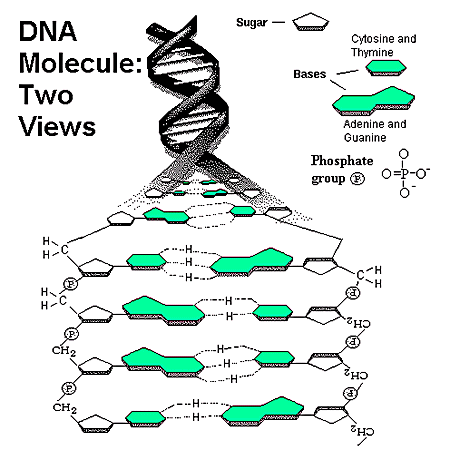
According to a recent article on CNN Mexico, "The Mexican population has grown 7 times in the past 100 years, but lives longer". The article states that "In a century, the Mexican population grew 700%, and at the same time life expectancy went from 25 to 75 years of age".
This sounds like good news, but their not.
With the population increase grows environmental decay and the decay in the quality of our foods. Example: 100 people will contaminate any habitat more than 1. What about our foods? Have your grandparents ever told you about how life was at the ranch or town in which they lived? It was a calm life full of walks from one side of the town to the other... It was a time when your neighbor was the one with who grew avocados and that's where you purchased them. Ripe, freshly picked, and of course, full of nutrients. There were no cars to contaminate the air, or planes that dropped exhaust on the masses. Dirty/contaminated air was the dust picked up by the wind or kicked up by a passing horse.
But that type of lifestyle has vanished with increased population. There are more and more larger companies that come in with modes of transportation that aggressively attack our environment and leave us with contaminants that make us sick. These large companies also introduce foods that never ripen before they are picked. So that Mexicans can get bananas from Ecuador, those bananas had to have been separated from the plant before they ripened. The problem is that nutrients are introduced to the fruits en the last 48 hours of ripening. If it isn't connected it will never receive the nutrients it is supposed to have. The very same nutrients that help us stay healthy.
Problem in MexicoWith increased age com many chronic problems. Medical Social Security in Mexico will not be able to take care of the population's medical needs. It is impossible, because these types of treatment cost a lot of money. With an increase in population and a prolonged lifespan, treatment costs will skyrocket, and it will be the end of Medical Social Security in Mexico. Or, if not... it will be the end of the country. It will be an economic impact from which it will not be able to recover. We sincerely believe that the Mexican government will change its laws in the near future.
All this because the people will suffer from more health issues. They won't have sufficient money to pay private doctors and will have to depend on the government.
Citzens, it's in your handsThe country is made or destroyed according the its citizen's actions. And what the Mexican citizens need to do in this case is to take control of their own health. You have to think about prevention and not wait until you are sick to start taking corrective measurements.
The people have let themselves be influenced by advertisement and marketing. The country renowned for its delicious fruit juices is now one of the top soda consumers in the world. The country that exports a lot of produce to the US only consumes vegetables in hamburgers or juices from foreign companies. Mexico has the second largest obese population in the world (only behind the US). But this will change in the next generations. Yes! Mexico has the highest child obesity rate in the world! When they grow up, they will become the most obese adults as well. We need to adopt a
Mediterranean style diet in which 70% of the food is in the form of raw produce (salads, vegetables, fruits, etc). Oils and meats that are rich sources of Omega-3 are consumed. The cheeses are fresh and the wines or beers are drunk, in moderation, with meals because enzymes in them help with digestion.
What happened to our fresh salsas? Now it is common to buy them in cans at the supermarket.
Let's stop eating the burgers, the sodas, and the candies. These are candies like before with a little bit of peanut and caramel. In which EVERYONE in the world can pronounce the ingredients. Now they are candy with colors and preservatives that only a biochemist can pronounce the ingredients of. Without a biochemistry degree it is near impossible to pronounce certain ingredients... much less know what they are, or know what they do to the body.
We need to return to a state of physical activity. A recent study found that the longer you sit (prolonged time) the shorter you'll live. And it doesn't matter how much exercise you do. The human body needs to move around. Think of the times when humans didn't have refrigerators or neighborhood stores a few steps from where we live. We had to hunt, climb trees, or dig to obtain our foods. There were no matches, lighters, or stoves that created instantaneous fire... It was a great task to start a campfire with stick or rocks.
And finally, you need to supplement. Science recognizes that it is impossible to get the necessary nutrients that your body needs to be healthy through diet alone. This is why Harvard's Medical School came out with a food pyramid that included "supplements for most". We have to think about an
optimal health system that supports the cell in it's 5 physiological needs.
Making decisions has to do with much more than yourself! What you eat and what you buy at the supermarket is what your kids will eat and what they will buy in the supermarket. Change your eating habits today and you will change the your health and that of your future generations.
There is a way to get the products from the optimal health system for free.
Get in touch with us today to learn details about this refund program.
Artícles:
[CNN México] (Spanish):
The Mexican population has grown 7 times in the past 100 years, but lives longer[ScienceDaily]:
More Time Spent Sitting Linked to Higher Risk of Death; Risk Found to Be Independent of Physical Activity Level
 The Huffinton Post published an article titled "The Dark Side of Vitaminwater". The important message IN THE WHOLE article breaks down to the following points taken directly from the article:
The Huffinton Post published an article titled "The Dark Side of Vitaminwater". The important message IN THE WHOLE article breaks down to the following points taken directly from the article:





















